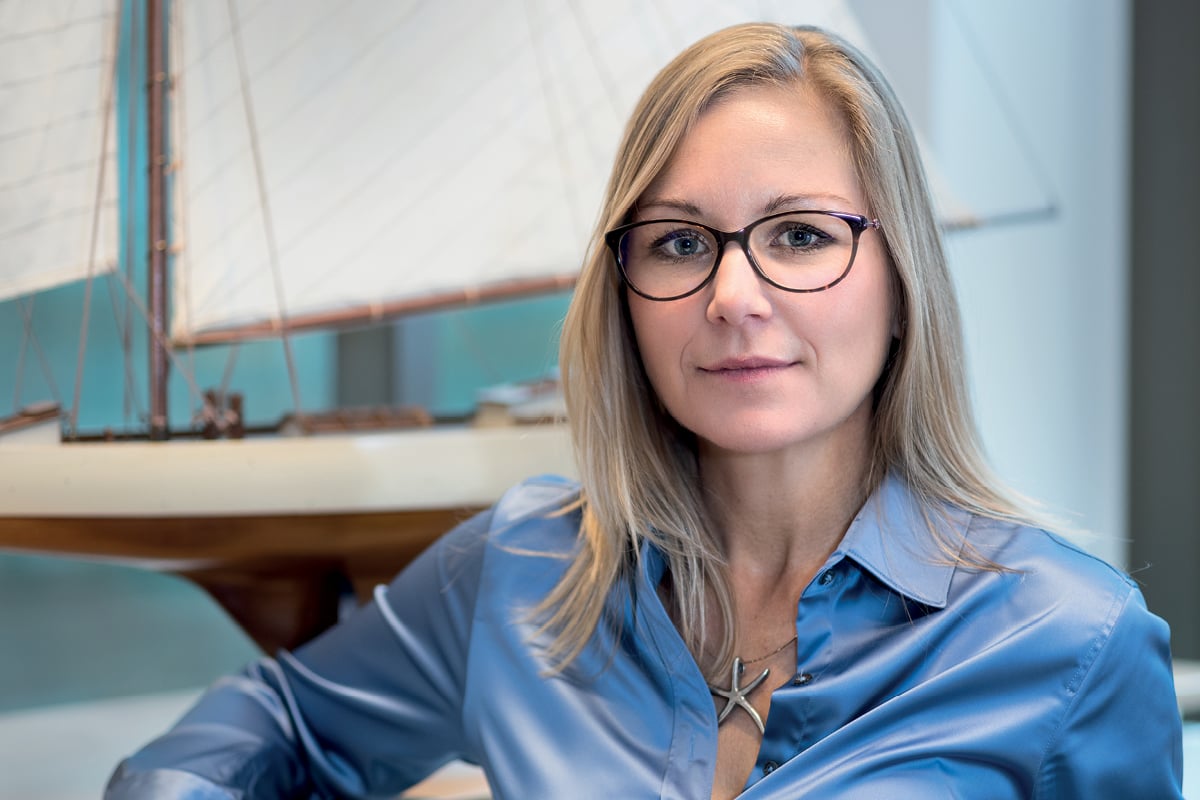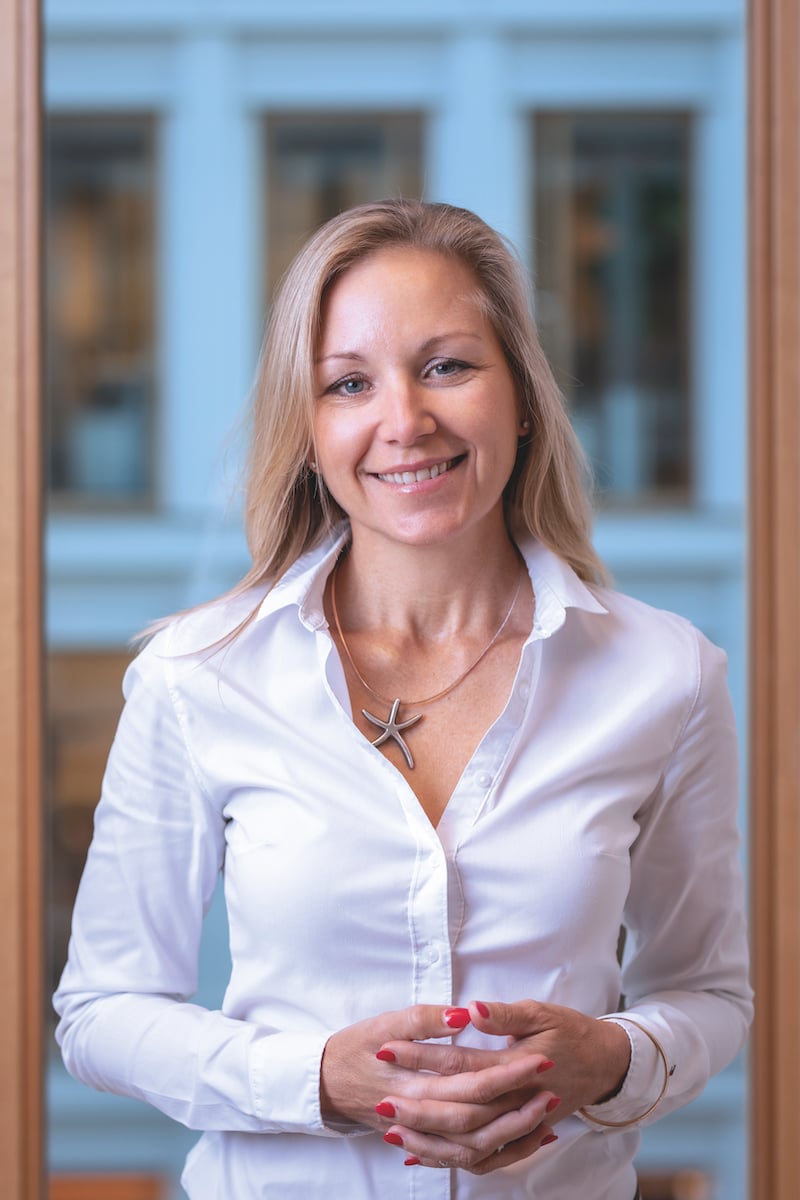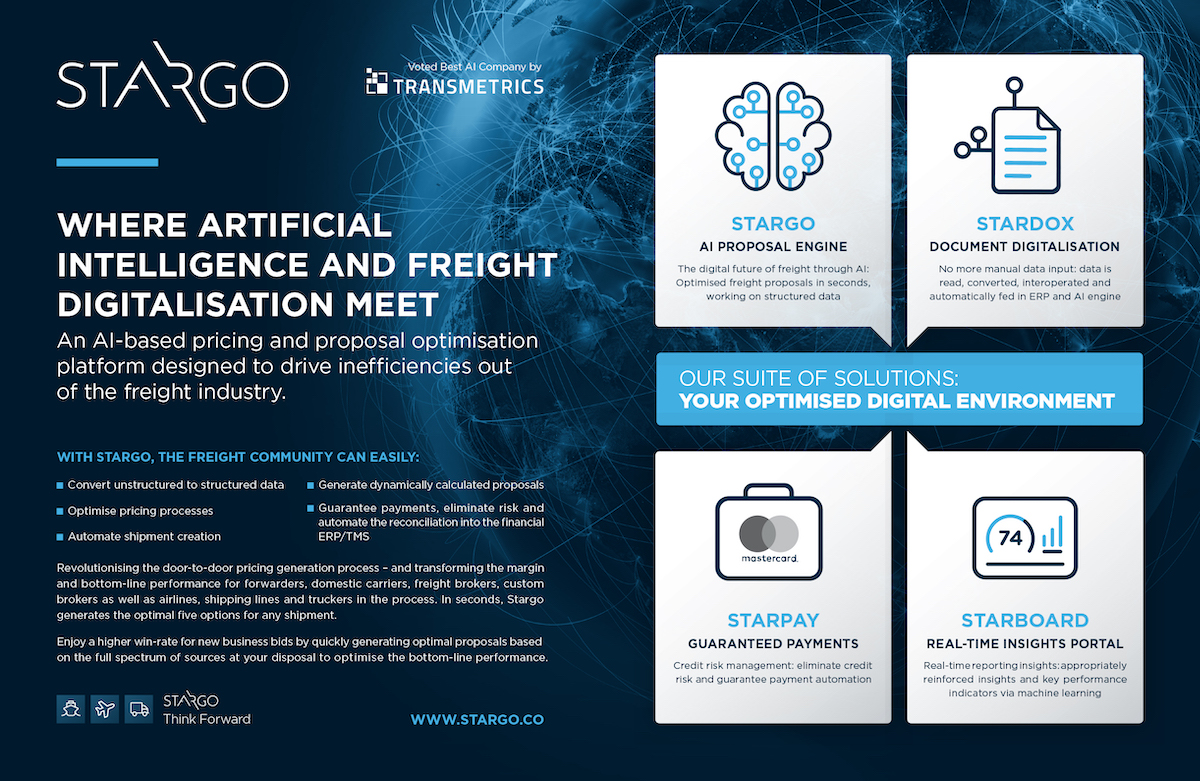Saskia Groen-in’t-Woud could not have escaped a career in male-dominated heavy industries even if she had tried. “I grew up in a town called Gladstone in Queensland, Australia, which is widely recognised as having one of the biggest port infrastructures in the Southern Hemisphere. My family also owns a mining construction company and I started going to mine sites from the age of six,” she says.

“I like heavy industries very much because it’s where everything begins; it’s a rewarding field to work in. Because of where I grew up and my family’s business, I think it is probably in my blood and was always destined to be my future.”
But it wasn’t her family’s business that she ultimately joined. “The family business is now run by my brother,” she reveals. “Being from a Dutch immigrant family in Australia, we had a fairly international childhood. I’ve always had aspirations to work overseas, which my family knew about and were very supportive of. It’s something I’ve always thought would be part of my future, and the opportunities to do so came from multinational companies.”
With gaining international exposure in mind, she landed herself in a job in cement manufacturing, which led to a 15-year career working in locations as diverse as the Philippines and Switzerland. Following that, she made her foray into the shipping and logistics industry in 2016 and has stayed in it since. Today, she serves as the CEO of Damco, the freight forwarding business unit of industry giant Maersk.
Having worked with teams from various cultures and led them to success, Saskia believes that there is one universal factor that unites all well-engaged employees. “Generally, people everywhere have a real need for the space to make meaningful contributions,” she shares. “It doesn’t matter where you go; everyone values being given the freedom to bring their best efforts to the job.”
She says that this can only be achieved by giving people a very clear understanding of what the company’s goals are and the steps needed to get there. Communication is, therefore, key.
“It’s very important to always check in with people, not only to make sure that everyone is on the same page, but also to get their feedback,” she says. “This is because the more senior you get in management, the harder you have to work to stay close to the front line. I see my role as CEO as 10% setting the direction and 90% removing obstacles for the people who are actually doing the work, so that they can get their jobs done.”
One of the biggest lessons Saskia says she has learned from her time working in Asia is to lead with what she calls “grace and care”. “I’ve worked in very European cultures, where you tend to lead with your head. But in Asia, especially in my time in the Philippines, I learned to lead with my heart,” she recalls.
“You may need to make difficult business decisions, but when it is done with grace and care, you can take people with you no matter how difficult that decision. People may not like it, but they will understand it and become advocates for doing things the right way. The CEO of the company I was with in Philippines was very insistent on being able to be a storyteller and leading people with your heart along with facts, figures and numbers. It was a valuable lesson for me.”
“You may need to make difficult business decisions, but when it is done with grace and care, you can take people with you no matter how difficult that decision.”
This lesson went on to serve her well when, in September 2018, Maersk announced the decision to remove supply chain management responsibilities from Damco and merge the division with Maersk Line’s Ocean Product. The move brought together the competencies of the two business units and was made with the aim of providing a complete end-to-end logistics solution for the firm’s customers. It also allowed Damco to fully focus on freight forwarding.

“My job was to untangle the freight forwarding business from the supply chain business; to separate it from Maersk and put in place a completely new organisational structure,” Saskia recalls.
“Overnight, we had to put 2,000 people into new roles and into a whole new company structure. It was an enormous shift and there was a lot of confusion. To do this with grace and care, I spent the first six months talking to people to understand why they felt the way they did, and also to explain why we were doing what we were doing.”
With the business now given a clear focus on freight forwarding, Saskia envisions it becoming a more purposeful and efficient operation. One tenet of the former is sustainability. “Maersk has quite an ambitious sustainability agenda. One of its goals is to get the first zero-emissions vessels on the water by 2030,” she reveals. “These sustainability goals will play a big role in the suppliers we choose to partner with.”
“These sustainability goals will play a big role in the suppliers we choose to partner with.”
The retail, electronics and technology industries are where Damco’s freight forwarding services have the strongest footholds, in part due to the rise of ecommerce. But with growth comes bigger tests for the firm’s sustainability movement.
“The challenge for companies like ours is to think two or three steps ahead,” Saskia explains. “We need to consider how ecommerce can be approached in a sustainable manner, continue to steer the conversation towards sustainable consumption and, therefore, sustainable business decisions that are adding value to all the communities in which we operate.”
As for the latter goal of becoming a more efficient operation, the firm invested significantly in its backbone network in 2019 and has procured a new control tower solution this year. Control towers for supply chains are technological solutions that create virtual central hubs providing complete visibility and real-time analytics of logistical processes. “The ability to connect at a more integrated level with customers and suppliers is a big step forward,” Saskia affirms.
The team is also working on getting rid of inefficiencies. “We have been cleaning up our operation processes, tidying up backlogs and making sure that the way we work with customer files is much more on point.”
When applied in conjunction with customer-care training, these improvements will pave the way for an overall more service-oriented operation. “The next step is for us to become very customer-focused and proactive in where we spend our time,” says Saskia.
“Instead of spending time clearing up old administrative records, I want people to be totally focused on proactively understanding our customers’ needs and working with suppliers to bridge that. Retaining strong relationships with our customers is very important because that will never go away – no matter how digital the world becomes.”
“Retaining strong relationships with our customers is very important because that will never go away – no matter how digital the world becomes.”
Saskia is looking forward to seeing more transparency in the industry. “The way that customers and freight forwarders work together now often results in an endless request for quote (RFQ) cycle that becomes very price-driven. It’s an industry that often runs on lowest price decisions, yet everyone demands innovation and future value,” she points out.
“Companies like ours need time to work with the customer over a duration to be able to generate the value they expect in their supply chains – and it’s difficult to achieve when everybody is in a constant bid to cut costs and give the lowest price. With better transparency, we will be able to be clearer about the commitment and relationship that is expected so that real innovation can come through.
“It takes time to develop the right solution that will give a payback in value for both the supplying company and the customer. Only then can the partnerships we’ve already built continue to deepen and develop more holistically.”
Proudly supported by:



